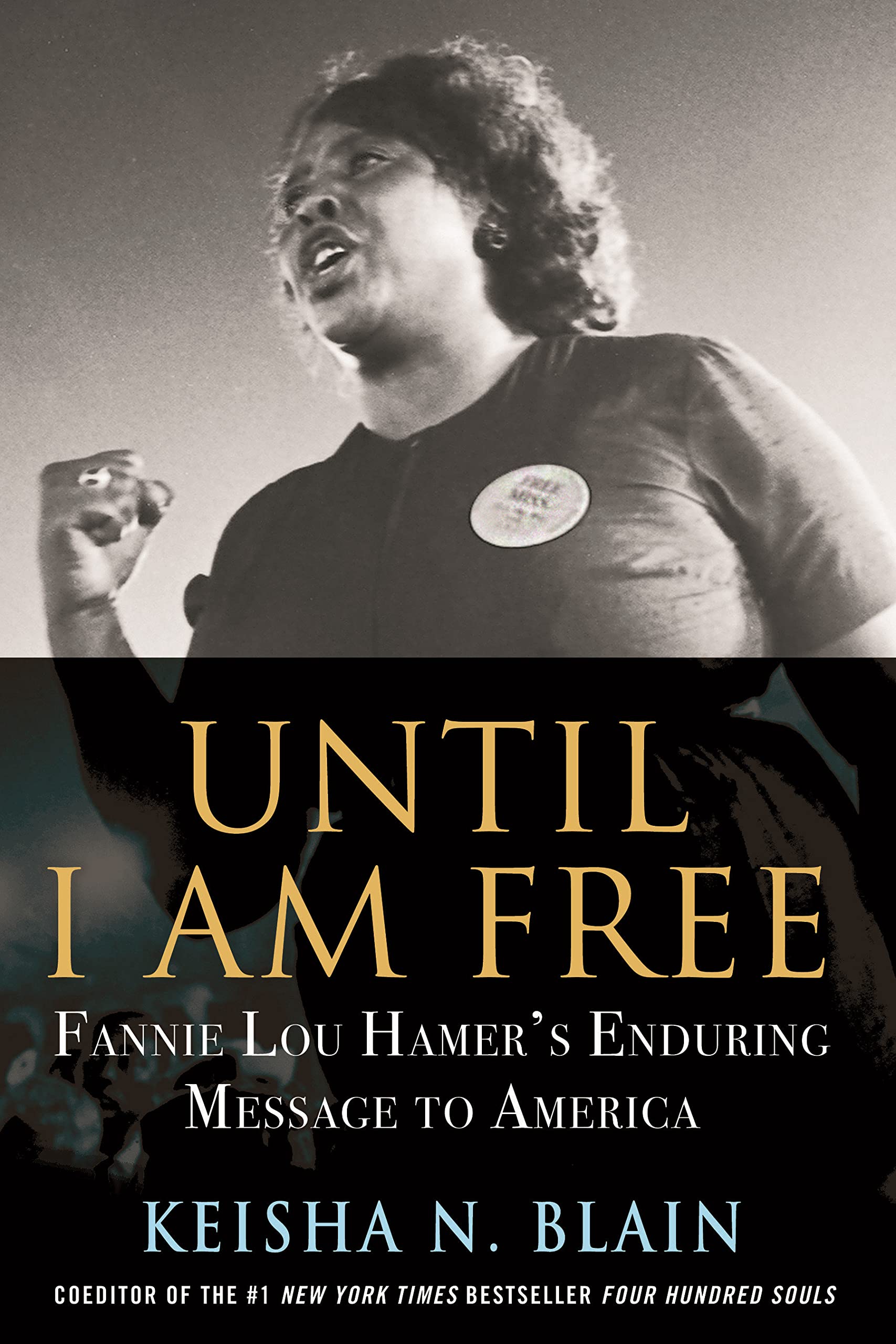Until I Am Free: Fannie Lou Hamer’s Enduring Message to America by Keisha N. Blain (Beacon)
The title of Keisha N. Blain’s magnificent biography of Fannie Lou Hamer comes from a speech that the civil rights activist delivered to a chapter meeting of the National Council of Negro Women in Mississippi in 1967: “We have a long fight and this fight is not mine alone. But you are not free whether you are white or Black, until I am free.”
Forty-five years after Hamer’s death, that fight is still ongoing. But it’s not for lack of trying on Hamer’s part; she battled against racism with grace, heart, and a ferocity that’s inspired generations of activists.
Blain traces Hamer’s life from her childhood in Mississippi, where she was the youngest of 20 children, raised by sharecroppers; she picked cotton with her family from a young age. She grew up in poverty despite her family’s hard work; the family would eat greens and flour gravy when times were tough. The family endured shocking, violent racism; when her parents saved enough to buy mules, the animals were poisoned by a white neighbor.
Hamer came to activism relatively late; she “found her calling,” Blain writes, when she attended a Student Nonviolent Coordinating Committee meeting when she was 44. Until then, she didn’t know that she had the right to vote.
She quickly became one of the most effective activists for women’s rights, civil rights, and voting rights in the U.S., co-founding the Mississippi Freedom Democratic Party, and speaking across the nation.
Blain does an excellent job not just chronicling Hamer’s life, but explaining why it matters. Until I Am Free is a slim book, but it sacrifices nothing; it’s a complete look at a woman whose work was integral to the civil rights movement. Blain writes beautifully, and she seamlessly blends biography with analysis. “More than forty years since Hamer’s death, her words still speak truth to power, laying bare the faults in American society and offering valuable insights on how we might yet continue the fight to help the nation live up to its core ideals of ‘equality and justice for all,’” Blain writes.
Hamer should, by all rights, be a household name; her activism gave hope to countless Americans, and the country is better for having had her fight for it. Until I Am Free is moving, brilliant, and gorgeously written—it’s the biography that Hamer deserves.



